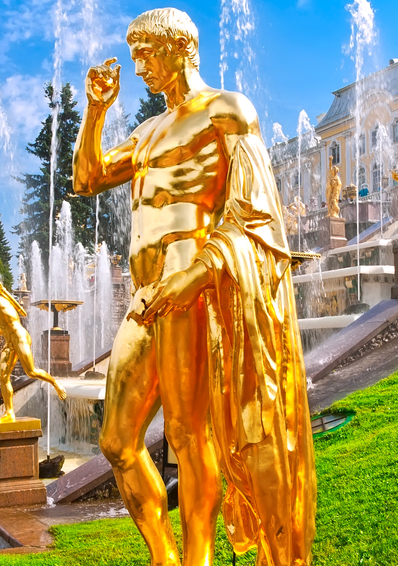Ukraine: Survival as a Human Right
Ahead of a decisive winter, Ukraine faces a difficult battle without strong support from the West.
October 7, 2014

The Ukraine crisis does not lead us back into the Cold War. Rather, it moves us forward into a clear-cut new constellation, defined by different notions of politics and different concepts of state-society relations.
The Cold War was the product of two antagonistic totalitarian ideologies, radicalized by Nazi Germany into a war of annihilation. It ended with the destruction of much of Europe and the occupation and division of Germany.
The surviving totalitarian ideology held hostage countries in Central and Eastern Europe that were forced to join the Soviet Union until its breakup in 1990.
The constellation today is defined by a neo-imperial Russia. Putin’s Russia considers force the continuation of politics by other means. It considers the rule of law and effective democratic participation as useless ways of weakening state centralism. And finally in Putin’s Russia, coercion, lies and intimidation are legitimate instruments to exercise state power over its own citizens.
Intimidation as self-determination
The Ukraine crisis does not include the danger of “falling back” into the logic of the Cold War. It does, however, include the danger of missing the point about what this new conflict is essentially about.
It is about subtle and overt actions against the Atlantic notion of an open society, of freedom, self-determination and liberty. Instead, it is cast in the language and behavior of geopolitical expansion and of spheres of influence.
The Ukrainian people are torn between their tradition – largely Soviet-influenced – and their hopes for the future. For the majority, these hopes are linked to joining the West, especially the European Union.
The most important thing the West can do at this point in history is to support the right of self-determination of those parts of Ukraine that still fall under the sovereignty of the government in Kiev.
Therefore, the elections to the new parliament in Ukraine in a few weeks are essential. They will hardly pass without Russia trying to influence them by means of subtle and overt coercion, intimidation and fraud.
The West must be prepared for this. And it must support all those social forces that try to move Ukraine toward an open, pluralistic and corruption-free society — aimed at anchoring itself in the Atlantic space.
Factually, Ukraine is divided; so are Georgia and Moldova. Mostly, citizens in these countries who want to join the space of Western structures present economic arguments. They want to improve life chances for themselves, their fellow citizens and their children.
In the end, they want to join a reality that is based on Western political thought, no matter how insufficient the ideals of the West may be.
Individual vs. state power
Those who think in imperial categories and intend to expand and consolidate Russian spheres of influence argue through the lens of state power. They do not care about individuals’ opportunities and life prospects. Their currency is distinctly 19th century pride and national heroism.
The coming winter will be the moment of truth for Ukraine. Will the country – or what is left if it – survive as a sovereign, pluralistic, self-determined state? Will it be prepared for the long march out of Soviet legacies and the cycle of corruption and mismanagement under its own different failed leaders?
Or will Ukraine render itself paralyzed, and hence become a pawn in the hand of Russian imperialism, whose ultimate aim may well be Kiev?
Human rights are rights of individual human beings, of course. But sometimes, the right of a state to survive in order to guarantee its citizens their free existence is a human right, too. This is what the war of cultures in and around Ukraine is all about in the winter of 2014/2015.
Takeaways
Will Ukraine become a pawn in the hand of Russian imperialism, whose ultimate aim may well be Kiev?
Putin’s Russia considers the rule of law and democratic participation useless ways of weakening state centralism.
Coercion, lies and intimidation are legitimate instruments to exercise state power over Russia’s own citizens.
The Ukrainian people are torn between their tradition – largely Soviet-influenced – and their hopes.
The West must support self-determination by the parts of Ukraine still under the sovereignty of the Kiev government.
Read previous

Global Society
Russia: Life After Empire
October 7, 2014
